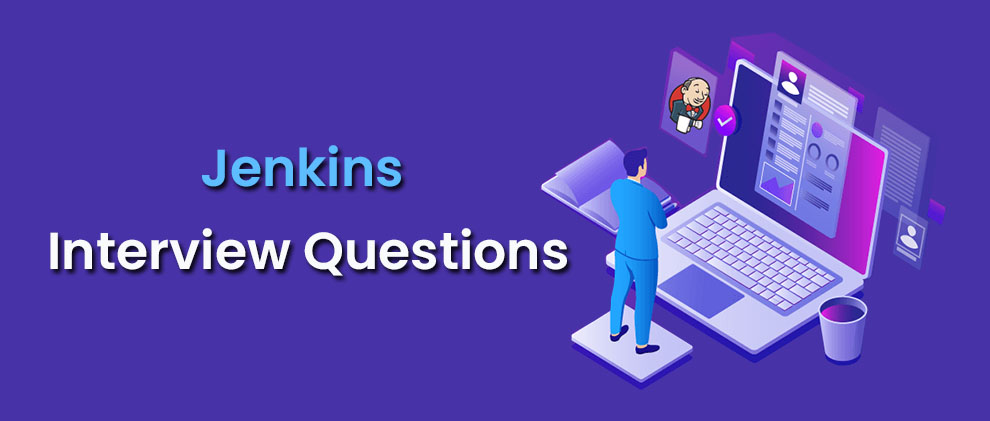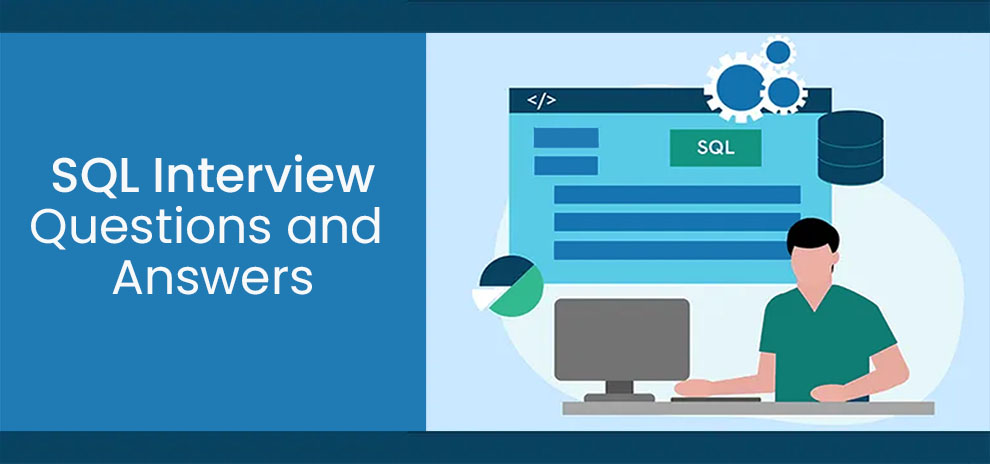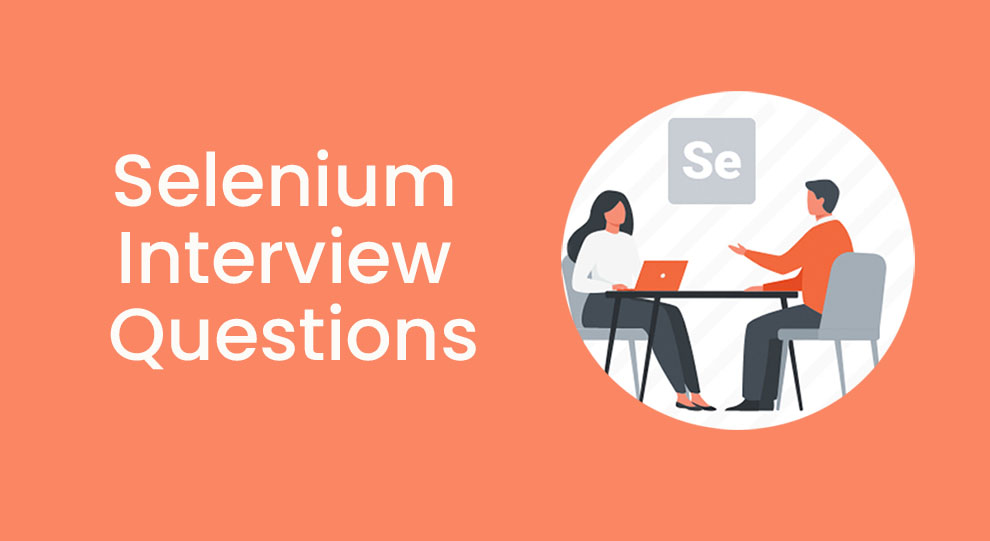When looking for a job in the DevOps domain, there’s no better tool than Jenkins to give you an entry. So, to help you land your dream job and excel in the Jenkins interview, it is essential to be fully prepared.
For this, you need an insight into the kind of DevOps Jenkins interview questions and answers you can expect. Read them thoroughly, prep your answers in advance. Do not mug it up all in without understanding what’s written. Rather try to understand what the question is trying to get from you and prep your answer accordingly.
So, let us look at the top 17 most popular Jenkins interview questions.
Skip To
- Jenkins Interview Questions For Beginners
- Jenkins Interview Prep For Experienced Learners
- Jenkins Interview Questions And Answers For DevOps Engineer
- Jenkins Interview Questions For Automation Testers
- Jenkins Pipeline Interview Questions And Answers
- Summing Up
Jenkins Interview Questions for Beginners
Ques 1. Mention some features of Jenkins.
In addition to knowing what Jenkins is, it is another essential question you must study while appearing for an interview. So, you can revert to this question something along these lines.
Ans. Some of the most crucial Jenkins features include:
- It is an open-source automation tool.
- It is 100% free.
- It has an array of plugins.
- It is easy to install and setup on various OS
- It has fast release cycles
- Upgrades are easy.
- Unsure of how to frame this very basic yet crucial answer, maybe one of the classes listed here could be the best jenkins course online to help you understand better.
Ques 2. Do you know what the relationship between Jenkins and Hudson is?
Ans. Back in time, the older versions of Jenkins were called Hudson. Thus, it would not be wrong to say that both Jenkins and Hudson are the same. Later because of some internal issues, the Hudson project was rechristened and called Jenkins.
Ques 3. List the different ways you can schedule build in Jenkins.
It is one of the most common Jenkins CI CD interview questions and answers for beginners.
Ans. Here are some ways to schedule build in Jenkins:
- Manual Build Requests
- Scheduling with the CRON jobs to run at a particular time
- Triggering builds sequentially after completion of the other builds
- You can also trigger them with source code management commits
Ques 4. Mention the prerequisites for using Jenkins.
There are some prerequisites you need to use Jenkins. It is vital knowledge for everyone appearing for the interview.
Ans. For using Jenkins, you need:
- A working build script, for instance, a Maven script checked into the repository
- An accessible source code repository, for example, a Git repository
Jenkins Interview Questions For Experienced People
Ques 5. Discuss some advantages of Jenkins.
If you are keen on finding a job in particular software, it is vital to know its pros. Hence, it is one of the top-question Jenkins interview questions and answers for experienced testers.
Some of the main benefits of Jenkins are:
- At the integration state, you can cache the build failures.
- By following the straightforward steps, you can automate the Maven release project.
- Jenkins help notify the developers about the build report’s success or failure via the LDAP mail server.
- Jenkins makes tracking the bugs in the early development stage environment easy. Hence, you do not have to wait until the production phase to catch the bugs.
- With Jenkins, it is easier to achieve continuous integration for test-driven and Agile development.
- You receive an automatic build report notification for every code commit change.
Ques 6. What do you understand by continuous integration?
Interviewees can proceed with these kind of Jenkins interview questions like:
Ans. Continuous integration is regularly monitoring the developer’s code in the version control system multiple times a day and automating the build to find and check bugs in the written code. However, its scope is not curtailed to it. Continuous integration also involves:
- Analyzing and generating reports
- Functional testing
- Code labeling
- Production deployment
- Unit testing
- Database integration
- Compilation and development
Ques 7. How can you add a user in Jenkins?
For experienced Jenkins professionals who know the answer, it may be one of the easy questions. But, it is noted that many, sans any practical knowledge, do not know it.
Ans. For adding a user in Jenkins, you follow the steps as follows:
- Head to Manage Jenkins and click on Create User
- Input the details
- Select Create user
Ques 8. Can you tell me about some of the most vital plugins in Jenkins?
Knowledge of Plugins is often tested in the interviews. So, it is also a common Jenkins interview questions and answers for experienced DevOps.
Ans. Some of the most vital Plugins in Jenkins are:
- Maven 2 project
- Git
- Amazon EC2
- HTML publisher
- Copy artifact
- Join
- Green Balls
We have included the most essential and beneficial Jenkins plugins. But, it is an inclusive list. So, if you wish to add more plugins to your answer, you can 100% do that, but please do not miss out on any of the ones listed above.
Jenkins Interview Questions and Answers for DevOps Engineer
Ques 9. How did Jenkins come into existence?
Though one of the most trivial questions, we have found it extremely common in many Jenkins interview questions for developers. Naturally, learning Jenkins is one thing but if you do not know the background, how can you prove to be a pro at it?
Ans. Originally famous as Hudson, Jenkins was invented when Oracle acquired the ownership to continue product development, but they christened it as Jenkins.
Ques 10. What are the different kinds of Jenkins pipelines?
Some of the prevalent kinds of Jenkins pipelines include:
- The declarative pipeline employs pre-defined commands.
- Scripted pipeline helps the developers custom-define different aspects related to the job.
Ques 11. Which command will you use to start Jenkins?
It is a popular question for DevOps engineers.
Ans. You will use the below-listed steps to initialize Jenkins:
- Open the Command Prompt
- From there, browse the directory where your Jenkins war resides.
- Then, run the command as follows:
D:\>Java –jar Jenkins. war
Ques 12. How would you save credentials in Jenkins securely?
Ans. You can securely store the credentials in Jenkins with the Credentials plugin. It saves various kinds of credentials, such as Username and Password, SSH username with a private key, Vault-related credentials, AWS Credentials, Secret File/Text, X509, Jenkins Build Token, and other certificates, safely with proper encryption and decryption as and when needed.
Jenkins Interview Questions and Answers for Automation Testers
Ques 13. How will you start Jenkins manually?
Ans. To start Jenkins manually, you can follow the below commands:
- To start Jenkins, click on jenkins.exe start
- To stop Jenkins, click on Jenkins.exe stop
- To restart Jenkins, you need to click on Jenkins.exe restart
Ques 14. Which source code management tools does Jenkins support?
It is one of the most commonly asked Jenkins interview questions for developers.
Ans. Jenkins supports various Source Code Management tools. Some of them are:
- AccuRev
- CVS
- Subversion
- Git
- Mercurial
- Perforce
- Clearcase
- RTC
Jenkins Pipeline Interview Questions and Answers
Ques 15. What do you mean by post in Jenkins?
Ans. For pipeline completion, you must undertake multiple additional steps in the post section in Jenkins. When all these steps get executed, the condition blocks and the pipeline achieves the completion status. Modified build and its failure, success, abortion, and instability are a part of the condition block.
Ques 16. How to deploy a custom build of a core plugin?
It is one of the most prevalent Jenkins CI CD interview questions and answers. To answer it correctly and impress the interviewer, you could say:
- You will have to stop Jenkins
- Then, copy the custom HPI to $Jenkins_Home/plugins.
- You must get rid of the earlier used expanded plugin directory.
- Now, create an empty file named hpi.pinned.
- Start Jenkins
Ques 17. Which scheme do you use to support various use cases in Jenkins?
Again, another one of Jenkins pipeline questions you may get asked.
Ans. The tool mainly relies on the parameters to support the various use cases of a pipeline in Jenkin. These parameters are typically applied within various directives stages and at a higher level of pipeline block.
Summing Up
So these are a few of the most commonly asked interview questions, but this list is not enough, and your preparation should be diverse. It is vital to be thorough with theoretical and practical aspects of Jenkins to excel at the interview and later in your job.





